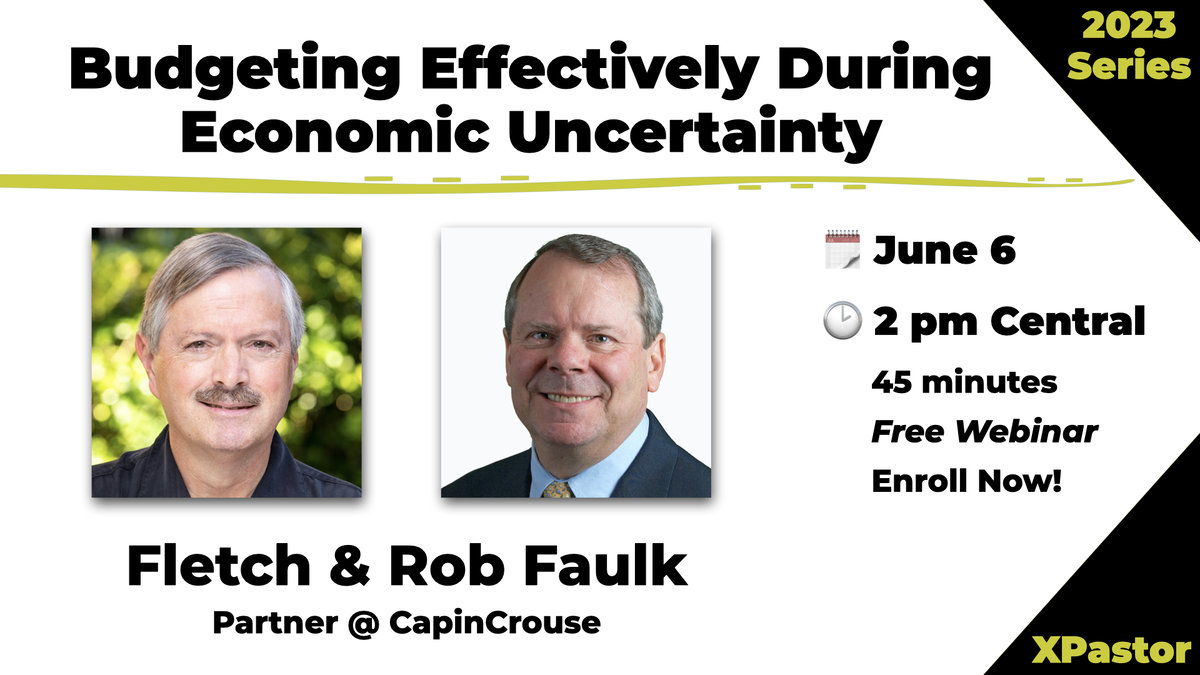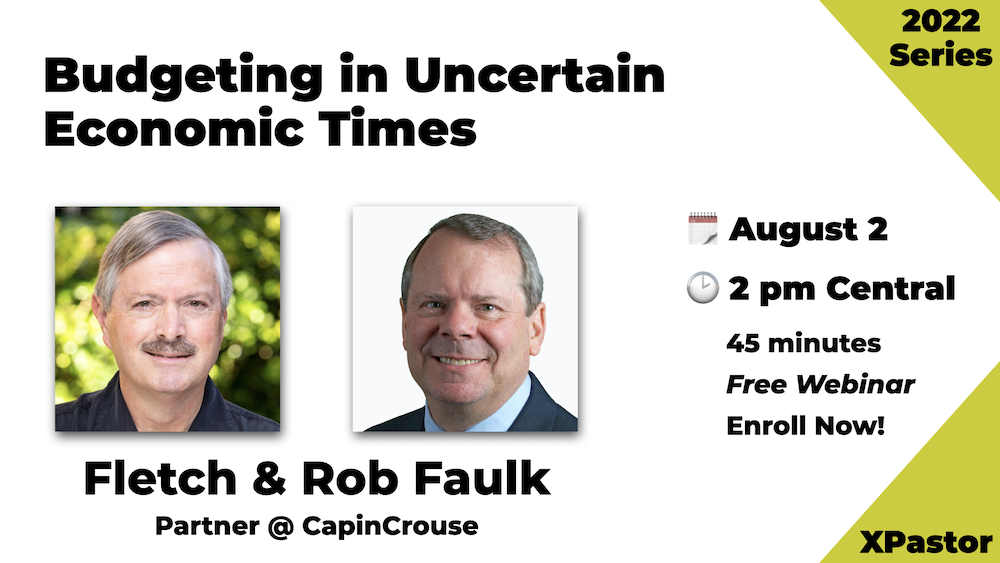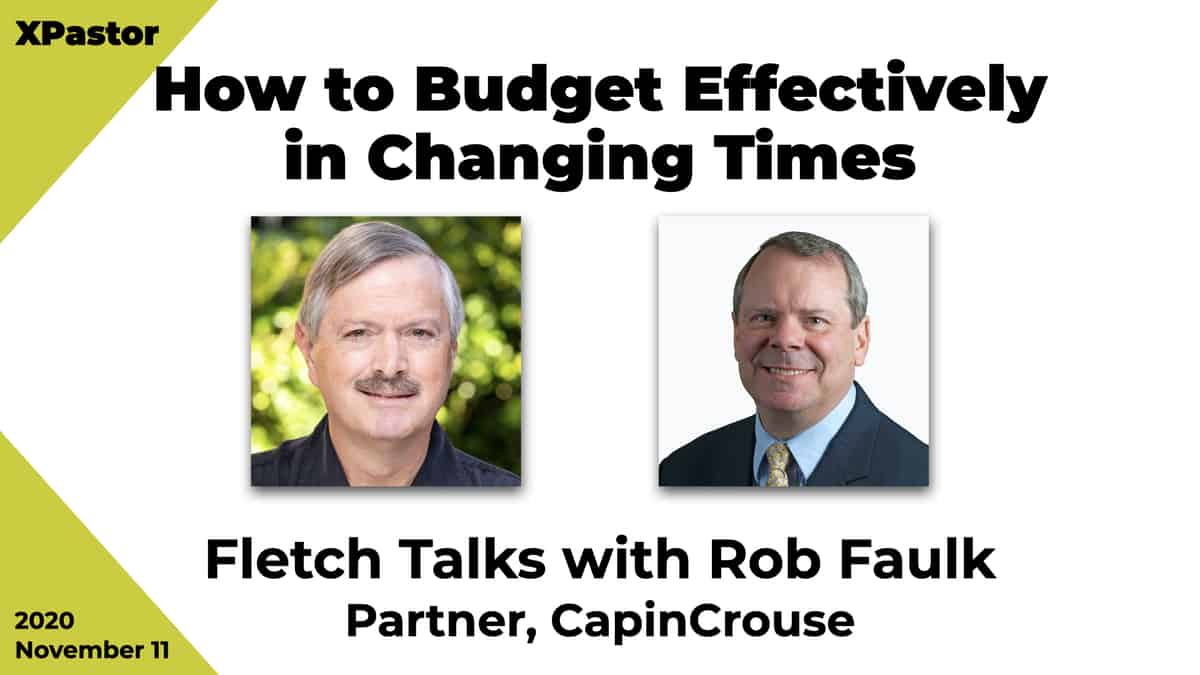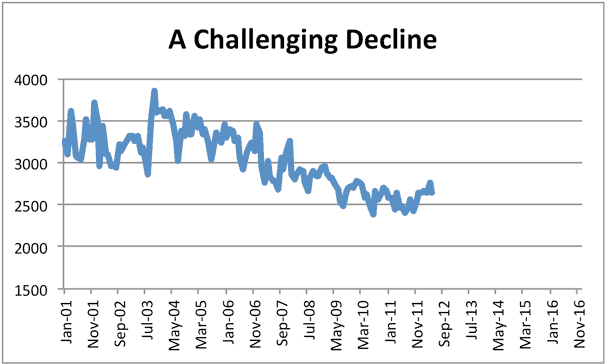As the French say, “the more things change, the more they stay the same.” This article was written about a past economic crisis, but the principles are stay the same—Fletch
The economy is on the front page of the news constantly and its effect has been felt in church circles. It has changed the way we do church, but the decrease in giving has not been as bad as many churches anticipated last fall.
From XPastor’s discussion at a conference this spring, the economy appears to have affected smaller churches; these churches feel the pain more if ten percent of their people become unemployed. In informal surveys of twenty Southern California churches, eighty percent had general fund giving that was up slightly over last year—and those that were down were not down dramatically. This does not mean that everything is going well. Many of those same churches had building funds that were behind budget or Christian schools with dramatic decreases in enrollment.
People are losing their jobs or making less this year. We have seen a decrease in giving from some families, but there has also been an increase in churchgoers. In addition, an increased awareness of the need for stewardship in the face of a financial crisis has resulted in more financial participation within our church. Giving toward our benevolent fund has doubled this year as people realized there were real needs in our congregation. Those who have been blessed with adequate resources have helped in this way during a unique opportunity.
Our church leadership decided to put a capital campaign on hold. We would like to do some improvements to our campus to further our vision. However, since they are not time sensitive, we decided to wait for some improvement in the economy before launching it. This is understandable. People are sacrificially giving to our church and it wouldn’t appear to be good stewardship to add an increased burden of a capital campaign. We have also heard of churches that are struggling with their building campaigns—two neighboring churches have extended their three-year campaigns into four-year campaigns. On the other hand, the economy does not limit God’s resources since He owns it all anyway.
I have also talked to a number of churches who believe that now is a great time to do a building project. Some contractors are hungry for work so you can save twenty percent or more on construction costs. Starting a campaign now could allow you to be a better steward of your finances—but consider whether the majority of those giving to your church have been dramatically impacted by the economy.
The economic crisis has allowed churches to become more efficient and opened doors for more creative ministry. The age-old concern of running your church too much “like a business” is a topic during an economic slowdown as well, but it’s also a time when pastors must pay attention to sound financial decisions. Many times we blame tough policies on our auditors, lawyers, or insurance agents; now we can blame tough actions on the economy!
Our church had already renegotiated many of our insurance and maintenance contracts, installed energy efficient lighting and even reduced our Christmas party expenses. We therefore had a hard time cutting additional expenses at the start of the downturn last year. Unfortunately, many times reducing your workforce is the only thing left to do to control costs. One of the hardest jobs of any Executive Pastor is to let people go; having the economic backdrop provides some understanding for those affected. Many churches I have talked to had to reduce their staff size or are leaving certain positions unfilled, creatively using volunteers instead.
The benefit of the economic crisis is increased opportunities to minister to our members who are going through a tough time, as well as the community around us. We have seen an increase in participation in our financial counseling ministry; attendance at budget coaching and mortgage workshops has been high. A financial crisis tends to amplify other marital, relational, and personal problems, so our counseling ministry has also had more people sign up for assistance. This economy might be the catalyst for people to realize their need for Christ and appreciate the willingness of the church to reach out and help them. We have been working on developing budget workshops to meet the needs of our community and are looking to partner with our local cities to help provide these services.
Our church has also continued to develop our community outreach partnerships. We have used the resources of our people’s time to help our city reduce some of its costs by adopting our local park, helping to maintain and clean it up. We want to show God’s love to our community in any way we can. If this economy makes us stand out more, then let’s shine brighter as a church.
I am not an economist but it seems like confidence has returned slightly. In our church we have seen a few unemployed people return to work—however, there is still a long list of those out of work. Some local economists think the housing prices will continue dropping until the fall, but some of the recent increases in consumer confidence and stock market gains are promising. The good news is that although we don’t know the economic future, we do know who does and can trust in His provision for ministry. We can continue to impact people in our local communities and around the world for Christ.








